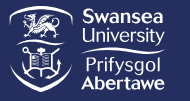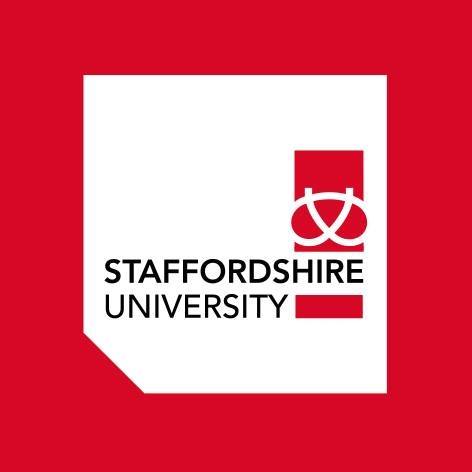Welcome to the Swansea University Schools’ Partnership (SUSP/PYPA), an innovative collaboration of school and university-based staff working together to ensure that ‘Tomorrow’s Teachers’ have the skills and experience to make a difference to pupils in Wales.

Course Overview
Welcome to the Swansea University Schools’ Partnership (SUSP/PYPA), an innovative collaboration of school and university-based staff working together to ensure that ‘Tomorrow’s Teachers’ have the skills and experience to make a difference to pupils in Wales.
Well-qualified English teachers are in high demand across the UK. SUSP has developed an innovative Secondary English PGCE programme that is designed to provide new entrants to the teaching profession with confidence in their subject knowledge and in their understanding of how to teach it.
This programme will prepare you to make a positive contribution to the learning communities you will be joining. SUSP’s Secondary English PGCE programme is underpinned by regional, national and international research. You will learn how to make English meaningful, interesting and fun and also how to analyse your own and your pupils’ development.
SUSP’s integrated and rigorous PGCE programme will challenge you academically and professionally. The PGCE English programme aims to develop critical understanding of the nature of English and its position in the school curriculum.
You will be encouraged to research and test your own approaches to English pedagogy to find those techniques that work best for you and for the pupils you teach.
SUSP is committed to developing research-informed reflective practitioners who can demonstrate creativity and flexibility in their teaching so that learners develop their subject competence in an environment that cultivates enjoyment.
Why Postgraduate Certificate In Education At Swansea?
The Swansea University Schools’ Partnership will draw upon the University’s considerable academic expertise in English. SUSP will provide high-quality, practitioner and research-led ITE based on the principle of integrated learning.
All aspects of the course have been developed collaboratively and will be delivered, quality assured and reviewed as a partnership to consolidate that collaboration throughout the year.
Swansea University Schools’ Partnership (SUSP) will deliver a high-quality, research and practice integrated programme premised on its vision of developing research-informed reflective practitioners who can contribute significantly to the quality of Welsh education.
Your PGCE Experience
The SUSP ITE programme is structured to allow multiple opportunities to address all the Professional Standards for Teaching and Leadership through rich learning experiences that reinforce, evaluate and support professional proficiency.
PGCE Employement Opportunities
Successful completion of the SUSP PGCE will lead to recommendation to the Education Workforce Council for Qualified Teacher Status (QTS) and provides opportunities for employment as a Newly Qualified Teacher (NQT) in schools.
Modules
The SUSP ITE programme comprises two modules:
Research-informed Reflective Practice (EDPM30) is largely university-based and will comprise the following:
Core Studies: focusing on the overarching issues that drive policies within the Welsh cultural context
Subject Studies: focusing on the specifics of pedagogy in your subject area, lesson planning, understanding your subject's place in the Areas of Learning and Experience (AoLE)
Subject Knowledge Enhancement: Focusing on reviewing the curriculum requirements in your subject area and preparing you for the topics you may be teaching
Professional and Pedagogical Studies: focusing on the implications for your subject area on whole school issues such as provision for children with additional learning needs, differentiation and assessment.
Research Methods in Education: focusing on research methodologies suitable for educational purposes and preparing you for your close-to-practice research project.
EDPM30 carries 60 level 7 credits. Student teachers who complete 60 Level 7 credits can carry over the credits to our MA Education
Professional Practice (EDP300) is designed to ensure that all student teachers develop a deep understanding of the how the Professional Standards for Teaching and Leadership link to the Four Purposes of the new Curriculum for Wales.
This module leads to the recommendation for Qualified Teacher Status (QTS). Student teachers will spend a minimum of 120 days on Professional Practice in two schools in the network within which they are placed, with additional opportunities in a range of complimentary settings.
EDP300 integrates research with classroom practice through a Practice and Theory course delivered jointly by Subject Tutors and expert teachers in network schools.
Subject Mentors and Subject Tutors will provide strong individualised support for student teachers working towards meeting the Professional Standard for Teaching and Leadership.
Bout Swansea University
Swansea University has been producing world class research since 1920. We have a long history of working with business and industry but today our research has a much wider impact, reaching across the health, wealth, culture, and well-being of a global society.
We have achieved an extraordinary level of success in recent years with our research activity exceeding that of many larger universities. This, though, has not compromised the friendly and relaxed atmosphere that has always characterised the “Swansea experience”.
As we continue our journey as a 21st century University, we look forward to becoming a truly global institution, focusing on the big issues, and improving lives, while continuing to provide inspirational teaching.
History And Heritage
The University's foundation stone was laid by King George V on 19 July 1920 and 89 students (including eight female students) enrolled that same year. By September 1939, there were 65 staff and 485 students.
In 1947 there were just two permanent buildings on campus: Singleton Abbey and the library. The Principal, J S Fulton, recognised the need to expand the estate and had a vision of a self-contained community, with residential, social and academic facilities on a single site. His vision was to become the first university campus in the UK.
By 1960 a large-scale development programme was underway that would see the construction of new halls of residence, the Maths and Science Tower, and College House (later renamed Fulton House). The 1960s also saw the development of the "finite element method" by Professor Olek Zienkiewicz.
His technique revolutionised the design and engineering of manufactured products, and Swansea was starting to stake its claim as an institution that demanded to be taken seriously.
Work began on the student village at Hendrefoelan in 1971, the South Wales Miners' Library was established in 1973 and the Taliesin Arts Centre opened on campus in 1984. The Regional Schools of Nursing transferred to Swansea in 1992, and the College of Medicine opened in 2001.
Technium Digital was completed in 2005 and, barely two years later, the University opened its Institute of Life Science, which commercialises the results of research undertaken in the Swansea University Medical School. Work commenced on a second Institute of Life Science in 2009.
In 2012 we began an ambitious campus expansion and development project, including the opening of our Bay Campus in 2015; which is home to the College of Engineering and the School of Management.
In 2018 we opened the doors to two further projects, The College; Swansea University's joint venture with Navitas (The International College Wales Swansea, ICWS) and the Computational Foundry; the home of the College of Science's departments of Computer Science and Mathematics.

The course is designed to support you in preparing or starting in a teaching role in post-compulsory education, enhancing your knowledge and your professional practice in the workplace.

Early Years Educators, and other job roles such as nursery nurse and childminders, are highly trained professionals who play a key role in ensuring that young children learn and develop well and are kept healthy and safe.

The participants gain the basic theory, underpinning knowledge and teaching concepts that are specific to language teaching.

This course is designed for those who have a keen interest in a career in the early years education sector and wish to study at an advanced level whilst also gaining invaluable ‘on the job’ experience.

Through our Primary Early Years PGCE, you’ll explore how to teach a play-based curriculum and get children involved in immersive and interactive experiences. The course also covers aspects of KS1 and KS2, giving you the flexibility to work across primary education for a career.
© 2024 coursetakers.com All Rights Reserved. Terms and Conditions of use | Privacy Policy